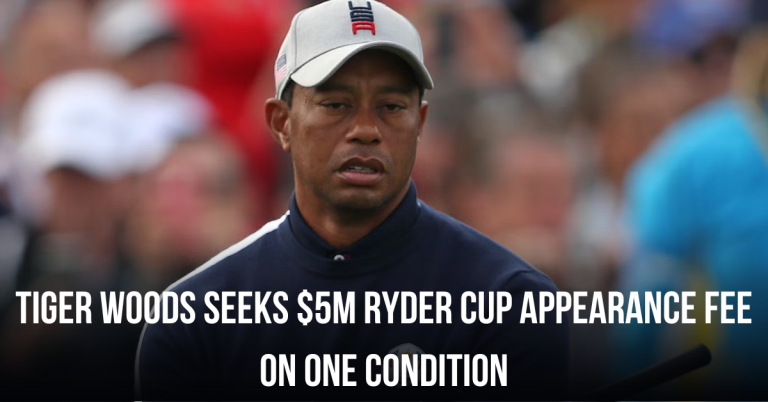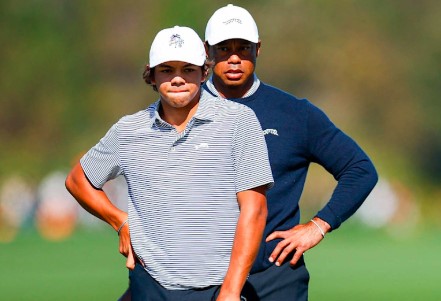LPGA’s Groundbreaking 2025 Gender Policy: What It Means for Women’s Golf

The Ladies Professional Golf Association (LPGA) has sparked widespread conversation with its newly announced gender policy, set to take effect in the 2025 season. This updated policy excludes players who have gone through male puberty, a decision that has drawn mixed reactions from sports enthusiasts, gender equity advocates, and athletes worldwide.
Why the Policy Change?
Maintaining Fair Competition
The LPGA’s decision was not made lightly. According to LPGA Commissioner Mollie Marcoux Samaan, the goal is to balance inclusivity with competitive fairness. “Our policy is reflective of an extensive, science-based and inclusive approach,” Samaan stated. The organization has expressed a strong commitment to creating a fair playing field while ensuring all feel welcome within the LPGA community.
Scientific Backing
The policy is grounded in research from a working group that included top experts in medicine, sports physiology, gender policy law, and golf performance. Their findings indicate that undergoing male puberty results in physical advantages in golf, such as increased muscle mass and swing power, which could impact the equity of the competition.
This science-driven perspective is critical to the LPGA’s decision, ensuring the changes are backed by measurable evidence rather than opinions or external pressures.
Key Details of the New Policy
What Does the Policy Include?
Here’s a breakdown of the main points of the LPGA’s updated gender policy:
| Policy Aspect | Details |
|---|---|
| Eligibility | Players must be assigned female at birth or satisfy specific medical criteria. |
| Testosterone Limits | Serum testosterone levels must remain below a set limit post-reassignment. |
| Exclusion | Players who have gone through male puberty are ineligible. |
| Applicability | Covers LPGA Tour, Epson Tour, Ladies European Tour, and elite competitions. |
This table simplifies the information for easy reference while providing essential details about the policy.
The Role of Testosterone Testing
To meet the eligibility criteria, players must provide evidence that their testosterone levels have remained below a specified threshold following gender reassignment. An expert panel will review this data alongside other factors to ensure compliance.
Global Reactions to the LPGA’s Policy
Mixed Reactions Across the Sports World
The policy has triggered significant debate. Supporters argue that it preserves the integrity of women’s golf, ensuring a level playing field. Critics, however, contend that it may discourage inclusivity, creating additional barriers for transgender athletes.
Supporters’ Perspective
Many players and fans applaud the move, emphasizing the importance of fairness. They believe the policy protects the spirit of women’s golf, ensuring that achievements reflect skill and dedication rather than physical advantages.
Critics’ Concerns
On the other side, some see the policy as exclusionary. Advocates for transgender rights argue that the decision could alienate a marginalized group, counteracting broader efforts for inclusivity in sports.
Comparing Policies in Other Sports
The LPGA’s stance aligns with similar decisions in other professional sports. For instance, World Athletics and FINA have also implemented rules restricting participation based on male puberty, reflecting a broader trend in the sports world to address competitive fairness.
Implications for Golf and Beyond
What This Means for Golf
The new policy is expected to have far-reaching implications. While it aims to preserve the integrity of elite competitions, it also sets a precedent for other golf organizations worldwide. The decision highlights the ongoing challenge of balancing fairness and inclusion in sports.
Broader Impacts on Gender Policies
Beyond golf, this policy could influence how other sports handle similar issues. The LPGA’s approach demonstrates the importance of combining scientific research with thoughtful policy-making, potentially serving as a model for others.
Conclusion
The LPGA’s decision to enforce a gender policy excluding players who have gone through male puberty has ignited a global conversation. While it aims to ensure competitive fairness, it also raises questions about inclusivity and representation in professional sports. As the policy takes effect in 2025, its impact will be closely watched by sports organizations and fans worldwide.
For the latest updates and expert insights into sports policies, visit Handy Sports.
Author: Lawrence Cummerata, Lagos, Nigeria






